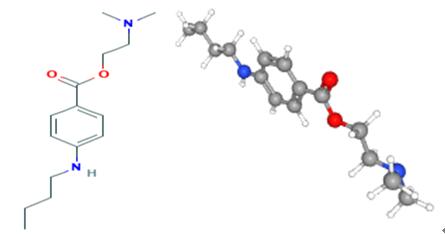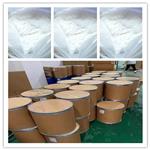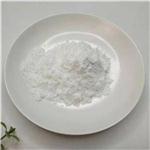Applications of Tetracaine
Nov 1,2019
Tetracaine is a benzoate ester with anesthetic properties. Upon administration, tetracaine reversibly binds voltage-gated sodium ion channels in neuronal cell membranes and inhibits sodium influx. This prevents the initiation and conduction of nerve impulses, and stabilizes neuronal membranes. This results in a loss of sensation, and thereby provides analgesia and anesthesia. Tetracaine is an Ester Local Anesthetic. The physiologic effect of tetracaine is by means of Local Anesthesia. The chemical classification of tetracaine is Esters. Tetracaine is a benzoate ester in which 4-N-butylbenzoic acid and 2-(dimethylamino)ethanol have combined to form the ester bond; a local ester anaesthetic (ester caine) used for surface and spinal anaesthesia. It has a role as a local anaesthetic. It is a benzoate ester and a tertiary amino compound.

Fig 1. Chemical structure formula and three-dimensional structure of Tetracaine
Ophthalmic tetracaine is indicated for the for procedures requiring a rapid and short- acting topical ophthalmic anesthetic. The combination lidocaine and tetracaine patch is indicated for local dermal analgesia for superficial dermatological procedures and superficial venous access. The combination lidocaine and tetracaine cream is intended to provide topical local analgesia for superficial dermatological procedures. Tetracaine is rapidly hydrolyzed in the plasma; therefore, volume of distribution could not be determined, clearance has not been determined. Tetracaine is rapidly hydrolyzed by plasma esterases to the following primary metabolites: para-aminobenzoic acid and diethylaminoethanol. The activity of both metabolites is unspecified. Tetracaine is an ester-type anesthetic and produces local anesthesia by blocking the sodium ion channels involved in initiation and conduction of neuronal impulses.
The most common adverse effects with the combination cream are localized reactions such as: erythema (47%), skin discoloration (16%), and edema (14%). Systemic adverse events were less common, occurring at a rate of <1% and included vomiting, headache, dizziness, and fever. Similar to other amide and ester anesthetics, CNS excitation and/or depression may occur. It is not well known at which plasma concentration systemic toxicity occurs with tetracaine; however, the threshold is thought to be much lower than that of lidocaine which is 1000 ng/mL. Tetracaine is a slow-onset, potent, and intermediate- to long-acting ester-type local anesthetic. Even longer duration of action can be achieved when tetracaine is administered along with a vasoconstrictor such as epinephrine. However it is quite toxic, and has been suggested to cause neurotoxicity at high doses in animal studies, resulting in cauda equina syndrome with repeated spinal dosing.
Tetracaine is used mainly topically or sometimes for spinal anesthesia. Tetracaine is highly lipid soluble and a significant amount can be absorbed when used in the mucous membrane or wounded skin[1]. Tetracaine is an ester derivative of PABA in which a butyl chain replaces one of the hydrogens on the p-amino group. The drug has approximately 10 times the toxicity and potency of procaine. It is no longer available for injection in dentistry; for surface application, it is most commonly marketed as a 2% hydrochloride salt in combination with 14% benzocaine and 2% butamben in an aerosol spray, solution, gel, and ointment under the proprietary name Cetacaine. Tetracaine is one of the most effective topical anesthetics, but the drug’s toxic potential after surface application should dictate caution in its use[2].
References
[1] Suzuko Suzuki, ... Kai Kuck, in Pharmacology and Physiology for Anesthesia (Second Edition), 2019.
[2] Daniel A. Haas, Christine L. Quinn, in Pharmacology and Therapeutics for Dentistry (Seventh Edition), 2017.
- Related articles
- Related Qustion
- Tetracaine: pharmacodynamic, pharmacokinetics and side effects Aug 9, 2023
Tetracaine patch blocks nerve impulses, providing effective anesthesia with mild side effects. Follow guidelines carefully.
Cyclopropyl carbinol is used as an intermediate for pharmaceuticals, agrochemical, and other organic synthesis such as for the applications for electronics chemicals, polymer additives, coatings, adhesives, and other applications.....
Nov 1,2019Organic Raw MaterialLithium bromide is a lithium salt in which the counterion is bromide. The anhydrous salt forms cubic crystals similar to common salt. It is a bromide salt and a lithium salt.Lithium bromide is a chemical compound of lithium and bromine.....
Nov 1,2019Metal halide and Halogen saltTetracaine
94-24-6You may like
- Tetracaine base
-

- $0.00 / 1kg
- 2024-06-28
- CAS:94-24-6
- Min. Order: 1kg
- Purity: 99%
- Supply Ability: 500
- Tetracaine
-

- $1.00 / 1kg
- 2024-06-28
- CAS:94-24-6
- Min. Order: 1kg
- Purity: 99%
- Supply Ability: 10 tons
- Tetracaine
-

- $10.00 / 1kg
- 2024-06-28
- CAS:94-24-6
- Min. Order: 1kg
- Purity: 99%
- Supply Ability: 300tons




